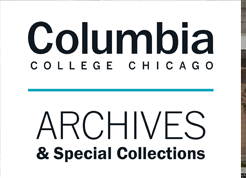
Document Type
Article
Publication Date
Spring 5-1-2015
Keywords
Anti-war demonstrations, social movements, Evangelical Lutheran Church of America, Chicago, Illinois, Cleveland, Ohio, Oakbrook, Illinois, Democratic National Convention, Chicago, Illinois, Church work, Segregation, Civil rights movement
Disciplines
Cultural History | History | Political History | Political Science | Religion | Religious Thought, Theology and Philosophy of Religion | Social History | United States History
Abstract
Length: 122 minutes
Interview with Reverend Bill Maloney by Edward Seitz
Rev. Maloney begins by explaining how, by virtue of their location alone, his church was at the center of the Conspiracy Seven [aka Chicago Seven] trial, when protesters, press and police would meet inside their building. He then talks about his childhood in East Liverpool, Ohio, growing up a very observant Lutheran family, participating in his high school newspaper and theater, and later, his college radio station. He recalls his time at Youngstown State University studying philosophy and sociology, his experiences in seminary school at Hammond Divinity School, and how he came to work for the regional church planning office in Akron, Ohio. He explains how he came to Chicago to serve at Christ the King Lutheran Church in 1965, where he worked with the young adult ministry. He recounts the events of 1968 DNC, when their church became an impromptu clinic, treating the demonstrators who had been beaten and gassed by the police. He draws parallels between the assassination of Dr. King in 1968 and the murder of Hadiya Pendleton in 2012 as illustrating the country’s problem with gun violence. He explains how he views his religious work as a “healing ministry” and his actions, during 1968 and beyond, are illustrative of that.
Recommended Citation
Seitz, Edward. "Interview with Reverend Bill Maloney" (Spring 2015). Oral Histories, Department of Humanities, History & Social Sciences, College Archives & Special Collections, Columbia College Chicago. http://digitalcommons.colum.edu/chicago1968/5
Streaming Media
Creative Commons License

This work is licensed under a Creative Commons Attribution-NonCommercial-No Derivative Works 4.0 International License.
Included in
Cultural History Commons, Political History Commons, Political Science Commons, Religious Thought, Theology and Philosophy of Religion Commons, Social History Commons, United States History Commons



Biography and Comments
In 1965, Rev. Bill Maloney was named pastor of Christ the King Lutheran Church, then at the corner of Jackson and Plymouth Court, Chicago, IL. Because of the location of his church, it became a refuge for both demonstrators and police during the Democratic National Convention protests and the Chicago Seven trial. He ministered for the RCPO, Cleveland, OH, Christ the King Lutheran Church and St. Stephens Evangelical Lutheran Church, Chicago, IL and Advocate Health Systems, Oakbrook, IL, then retired from the Evangelical Lutheran Church of America. He died in 2016.
The interviewer conducted this oral history as part of his/her coursework for the Spring 2015 class, Oral History: The Art of the Interview. This project was completed in collaboration with the Council of Religious Leaders of Metropolitan Chicago and the College Archives & Special Collections department at Columbia College Chicago. Contact archives@colum.edu for more information.